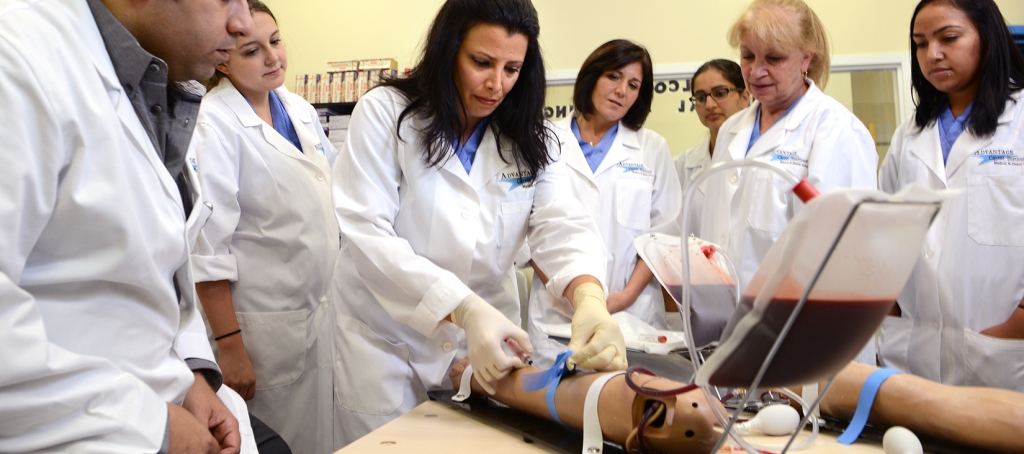# Title: The Importance of Phlebotomy Continuing Education for Healthcare Professionals
## Introduction
Continuing education is essential in any field, but in healthcare, it is crucial to stay updated with the latest advancements and best practices. Phlebotomy, the practice of drawing blood for medical testing or donation, is no exception. Phlebotomy continuing education ensures that healthcare professionals who perform this vital task have the necessary knowledge and skills to provide safe and efficient care to patients.
In this article, we will discuss the importance of phlebotomy continuing education, its benefits, practical tips for fulfilling educational requirements, and real-life case studies showcasing the impact of ongoing education in the field of phlebotomy.
## Why Phlebotomy Continuing Education Matters
Phlebotomy is a critical component of patient care, as blood samples are often needed for diagnostic purposes. Healthcare professionals who perform phlebotomy must be well-trained and competent to ensure accurate results and minimize the risk of complications. Continuing education helps phlebotomists stay updated on the latest techniques, equipment, safety protocols, and regulatory requirements.
### Benefits of Phlebotomy Continuing Education
1. **Enhanced Skills**: Continuing education allows phlebotomists to improve their venipuncture techniques, communication skills with patients, and knowledge of best practices in the field.
2. **Maintaining Certification**: Many phlebotomy certifications require ongoing education to renew, ensuring that professionals meet current standards.
3. **Career Advancement**: Continuing education can open up opportunities for career growth and specialization in areas such as pediatric phlebotomy or geriatric phlebotomy.
4. **Patient Safety**: Well-trained phlebotomists are more likely to perform blood draws accurately, reducing the risk of complications such as hematoma or nerve injury.
5. **Legal Compliance**: Staying informed about the latest regulations and guidelines helps healthcare professionals avoid legal issues and maintain a high standard of care.
## Practical Tips for Fulfilling Phlebotomy Continuing Education Requirements
To meet continuing education requirements and stay current in the field of phlebotomy, healthcare professionals can consider the following tips:
1. **Online Courses**: Many organizations offer online courses on phlebotomy topics, making it convenient for busy professionals to earn continuing education credits.
2. **Workshops and Seminars**: Attending hands-on workshops and seminars can provide valuable practical experience and networking opportunities.
3. **Professional Conferences**: Participating in phlebotomy conferences allows professionals to learn from experts, stay updated on industry trends, and earn CEUs.
4. **Mentorship Programs**: Working with experienced phlebotomists as mentors can enhance skills and knowledge in a real-world setting.
5. **Self-Study**: Reading phlebotomy journals, textbooks, and research articles can help professionals stay informed on the latest developments in the field.
## Case Studies: The Impact of Phlebotomy Continuing Education
### Case Study 1:
Hannah, a phlebotomist at a busy hospital, took a refresher course on pediatric phlebotomy techniques. As a result, she improved her skills in drawing blood from young patients, reducing the need for repeat attempts and minimizing patient discomfort.
### Case Study 2:
John, a phlebotomy supervisor, attended a national phlebotomy conference where he learned about the importance of quality control in blood collection. He implemented new protocols in his department, resulting in improved accuracy of test results and decreased incidence of specimen rejection.
## Conclusion
Phlebotomy continuing education is essential for healthcare professionals to provide safe and effective patient care. By staying informed about the latest techniques, safety protocols, and regulatory requirements, phlebotomists can enhance their skills, maintain certification, and advance their careers. Whether through online courses, workshops, conferences, mentorship programs, or self-study, ongoing education plays a crucial role in the success of phlebotomy professionals.
investing in phlebotomy continuing education is an investment in quality patient care and professional growth. Stay informed, stay skilled, and stay committed to lifelong learning in the dynamic field of phlebotomy.
Remember, knowledge is power – especially when it comes to drawing blood! Let’s continue to raise the standard of care in phlebotomy through ongoing education and training.
